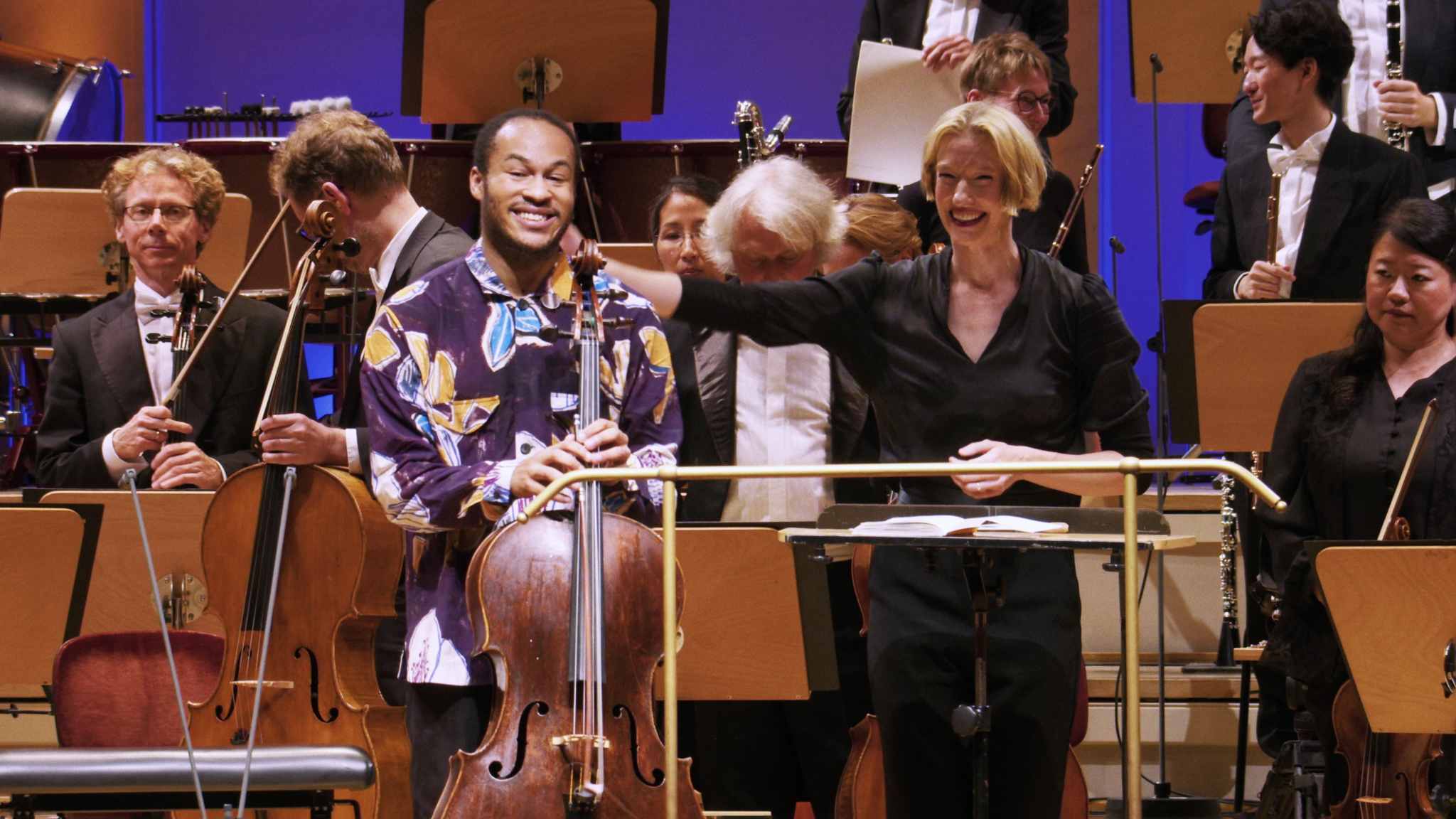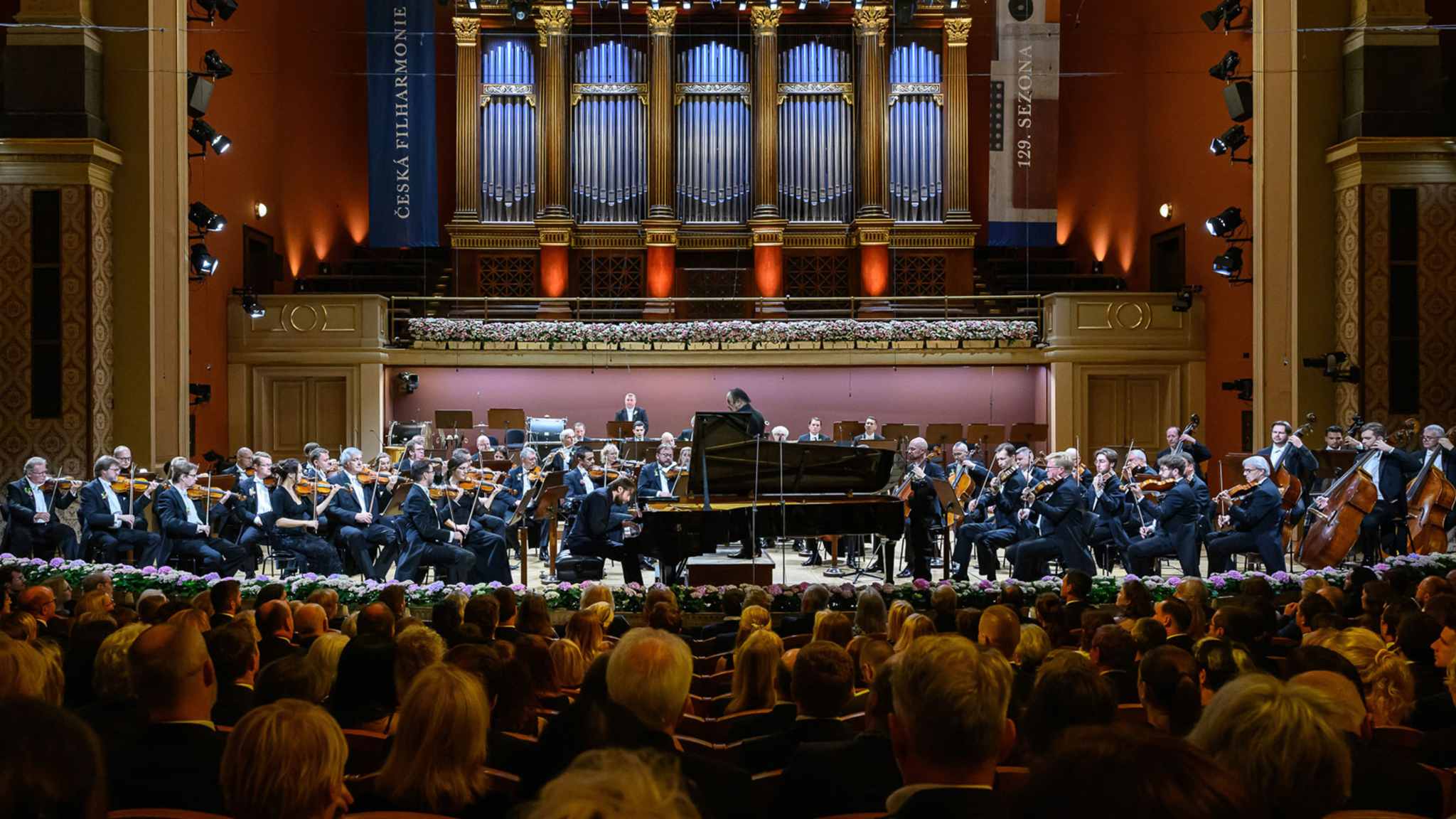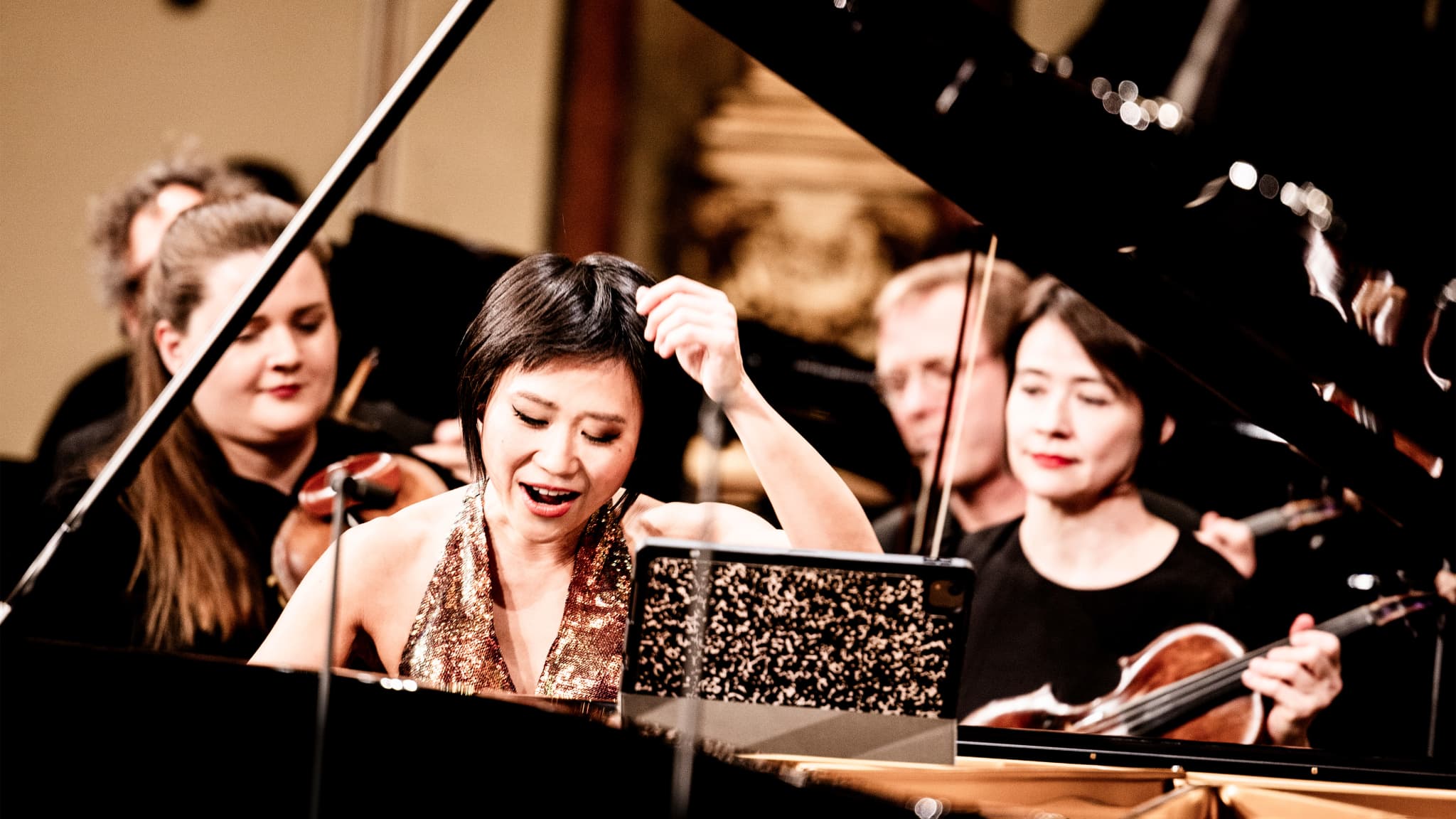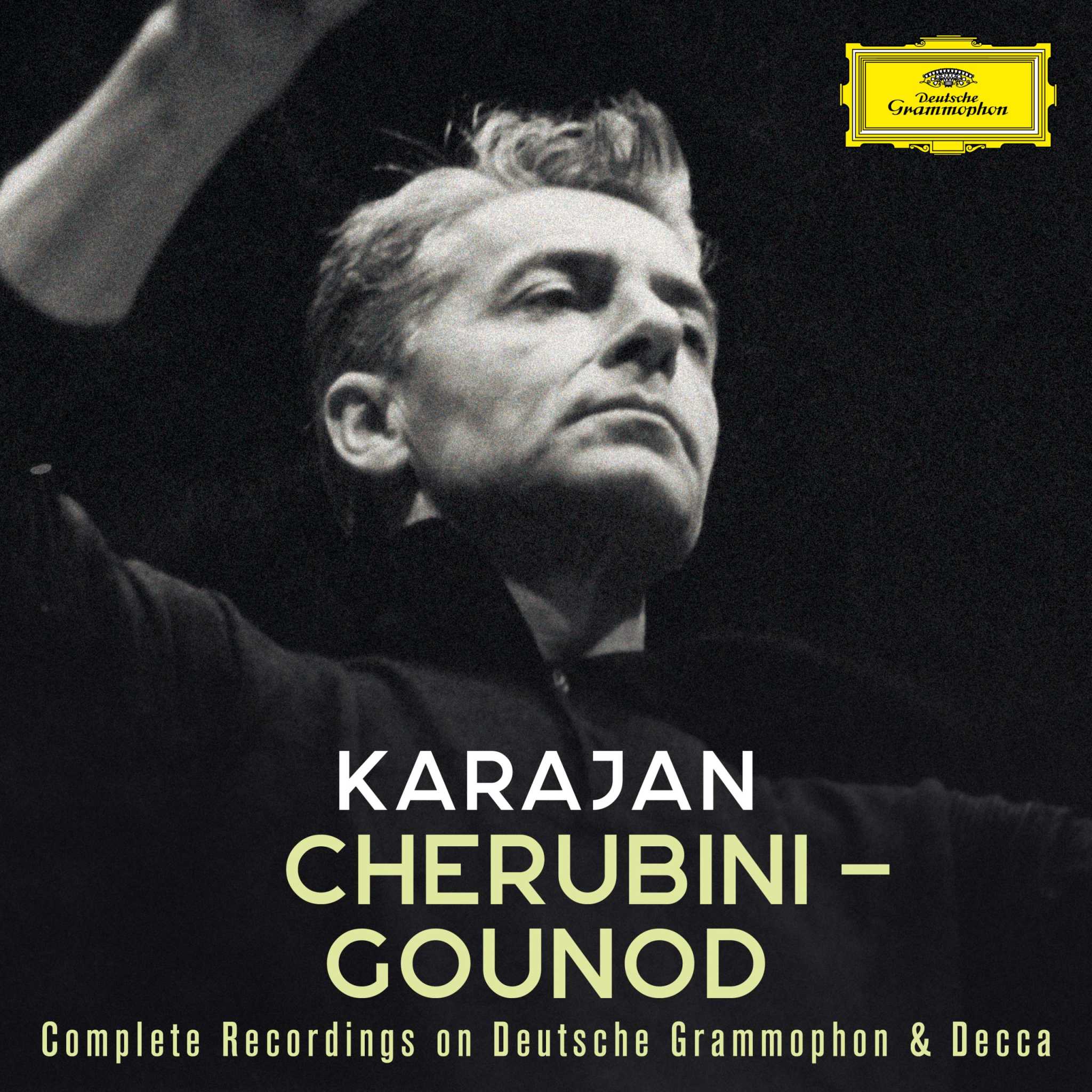Antonin Dvořák's legacy is so large and varied, but his mature style, neither conservative nor radical, is always recognisable. Despite honours and awards, he remained a modest man of simple tastes, loyal to his Christian faith and Czech identity. Dvořák was the son of a butcher and zither-player. His parents recognised his precocious talent and they sent him away to study music and to learn German, the language of Bohemia's educated classes. After graduating from the Prague Organ School in 1859, he joined the orchestra of what became Prague's Provisional Theatre as a viola player, playing with them from 1862 to 1871, composing only on the side. His breakthrough as a composer came in 1872 with a patriotic cantata, Hymn: The Heirs of the White Mountain, with wider acclaim coming with the Moravian Duets and a first set of Slavonic Dances written in 1878.
Brahms was a friend and mentor who helped Dvořák acquire a German publisher and was an important influence on his music. But Dvořák's melodic generosity and frankness is his alone, and foreign performances increased, and with them came more international commissions. Dvořák's music was much sought after by the big English choral festivals and gaining popularity in the United States. With his skilled blending of folk culture with high art, the newly founded National Conservatory of Music appointed Dvořák as its first artistic director. Arriving in New York in 1892, he sought out black musicians to sing him spirituals and plantation songs, and scholars to provide him with transcriptions of Amerindian music. The first work he was inspired to complete became so successful that it risked blinding music lovers to the rest of his output: his Ninth Symphony, subtitled "From the New World".
Dvořák's time in America produced several important works. Among them is the popular Twelfth String Quartet, known as "The American", and the Cello Concerto, one of the crowning items in that instrument's repertoire. Dvořák returned home and worked on two final string quartets in 1895. One of these, the 13th, turned out to be the most deeply felt and original of all his quartets. He also renewed his determination to succeed in music theatre, but scored only one indisputable masterpiece in that realm, the magnificent fairy-tale opera Rusalka.

















